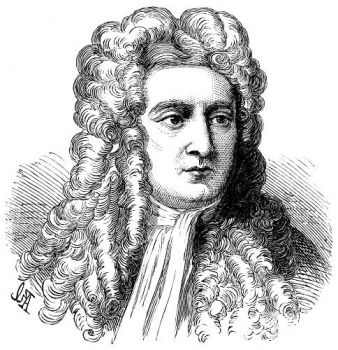Broadcast: News items
Newton’s lost theological works reunited for the first time online
By: Alison Field
Last updated: Wednesday, 19 May 2010

Isaac Newton
A newly completed research project at Sussex that has been collating and digitising the 'lost' theological writings of Sir Isaac Newton has produced one of the largest online collections of writings of any individual.
Newton (1642-1727) is arguably the greatest scientific figure of all time. He discovered how gravity works, designed the first reflecting telescope, and laid down the three laws of motion, all of which have dominated the scientific view of the physical universe ever since.
However, Newton considered his religious writings to be the most significant field of his research. He wrote far more on religion and Biblical interpretation than on the natural sciences and mathematics.
Sussex historian Professor Rob Iliffe, who leads the Newton Project, explains: "Newton believed that God had specially chosen him to discover the truth about the Christian religion."
Newton's non-scientific papers were auctioned by Sothebys in 1936, which resulted in them being scattered in collections in more than 20 countries. One of the Newton Project's main objectives has been to reunite all of this previously lost material with Newton's scientific papers.
Until the project began collating and transcribing the papers ten years ago, the vast bulk of his theological works had only ever been seen by a handful of privileged scholars.
Visitors to the website (www.newtonproject.sussex.ac.uk) can now see, for the first time, Newton's private, unpublished historical and religious writings, alongside all the editions of his great scientific works.
Visitors can also read short summaries on his views on Biblical prophecy, Newton as a historian, his views on science and religion, and his character and troubled mind.
One of the most personally revealing inclusions is Newton's list of his sins. Dating from 1662, a 19-year-old Newton records improper behaviour on the Sabbath, but also other misdemeanours such as stealing cherries, punching a close friend, having "unclean" dreams, and threatening to burn down his mother and stepfather's house with them in it.
The project, funded by a grant from the Arts and Humanities Research Council (AHRC), is a collaboration of the University of Sussex and Peterhouse College, Cambridge.

